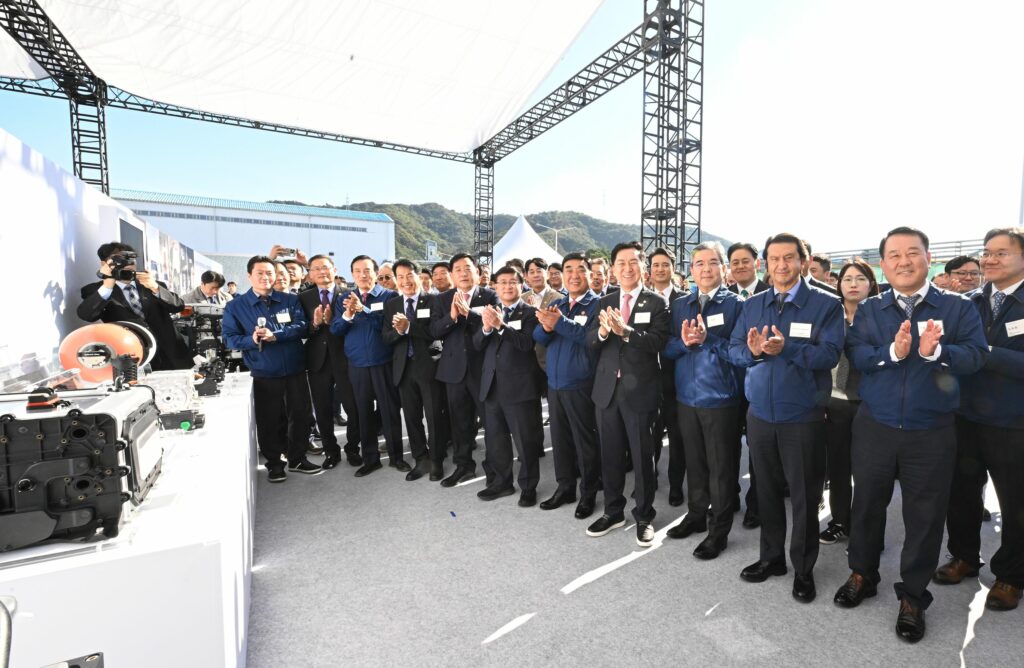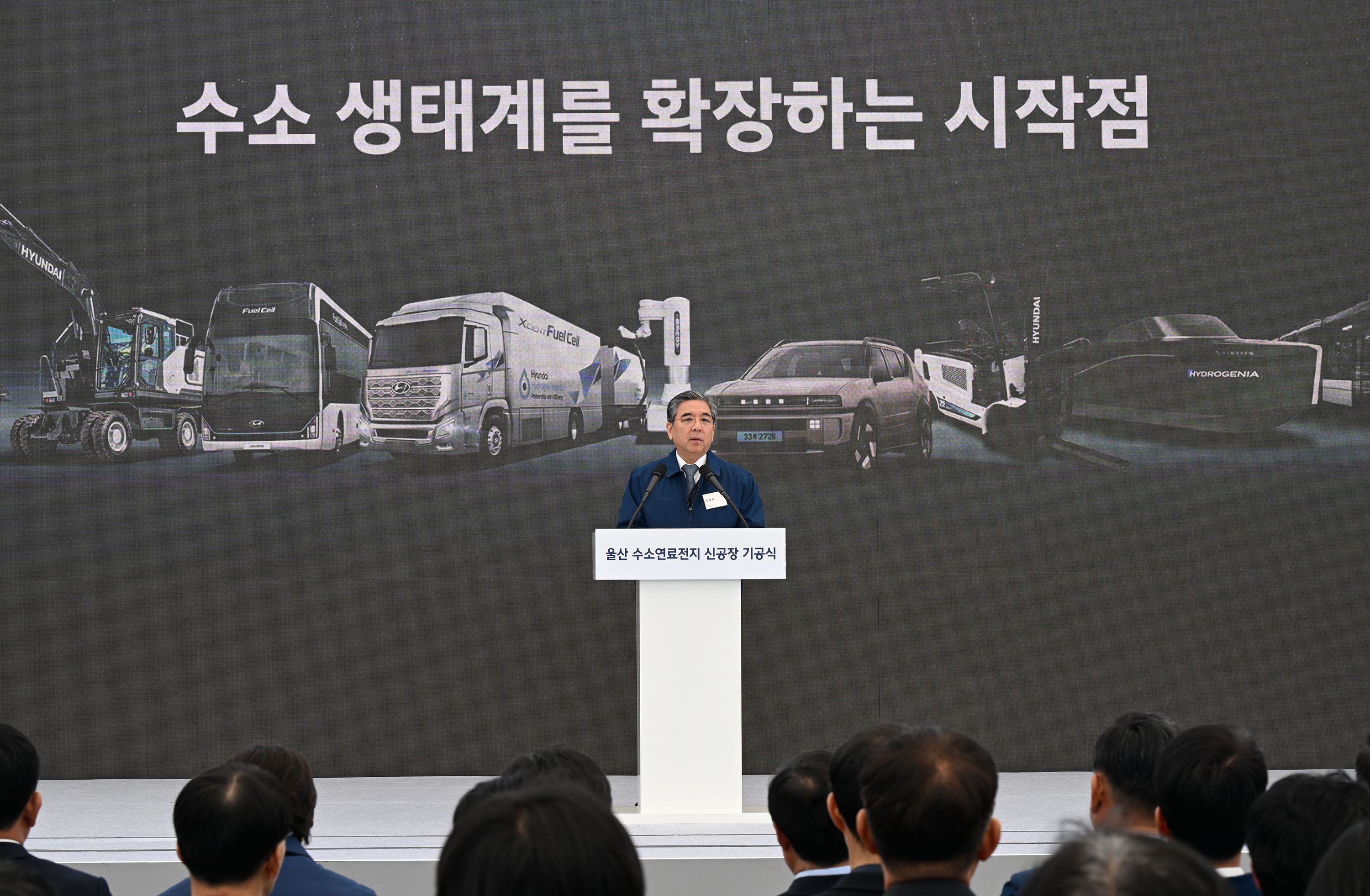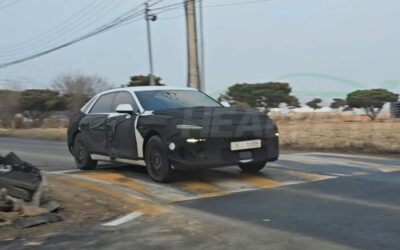Hyundai Motor Company has officially broken ground on a state-of-the-art hydrogen fuel cell production facility in Ulsan, South Korea. The new plant represents a major milestone in Hyundai’s ongoing commitment to leading the global hydrogen economy and accelerating the transition toward carbon neutrality.
The groundbreaking ceremony was attended by key government and industry leaders, including Jaehoon Chang, Vice Chair of Hyundai Motor Group; Sungwhan Kim, Minister of Climate, Energy and Environment; and Shinhak Moon, Vice Minister of Trade, Industry and Resources. Their presence — alongside Ulsan Mayor Doo-gyeom Kim and international delegates such as Ivana Jemelkova, CEO of the Hydrogen Council — underscored the growing strategic importance of hydrogen as a clean energy solution for the future.
“This plant embodies Hyundai Motor Group’s strategic commitment to advancing the hydrogen society transition,” said Vice Chair Chang. “It will serve as a critical foundation for national economic growth and Korea’s leadership in the global hydrogen industry.”
A Symbol of Transformation: From Combustion to Clean Energy
Located on the site of a former internal combustion engine transmission plant, the new 43,000-square-meter facility marks a symbolic shift in Hyundai’s journey from traditional automotive manufacturing to sustainable mobility innovation.
Scheduled for completion in 2027, the plant will feature integrated chemical processing and assembly operations with an annual production capacity of 30,000 hydrogen fuel cell units. Operating under Hyundai’s HTWO brand — short for “Hydrogen for Humanity” — the facility represents an investment of KRW 930 billion.
Advancing Core Hydrogen Technologies
Hyundai Motor aims to establish global leadership in hydrogen fuel cell and electrolyzer technologies through two flagship innovations:
- Next-Generation Hydrogen Fuel Cell
Enhanced power output and durability compared to current models.
Designed for price competitiveness and scalability.
Suitable for diverse applications including passenger vehicles, commercial trucks, buses, construction equipment, and marine vessels.
- PEM Electrolyzers — A First for Korea
Production of polymer electrolyte membrane (PEM) electrolyzers to generate high-purity hydrogen from water without carbon emissions.
Draws on nearly 30 years of Hyundai’s fuel cell expertise, with 90% localization of components achieved.
Supports Hyundai’s ongoing green hydrogen initiatives, including a 1 MW containerized electrolyzer system and a 5 MW-class project in Jeju.

Advanced Manufacturing for the Hydrogen Era
The new Ulsan facility will operate as an advanced smart manufacturing platform, integrating Hyundai’s human-centered manufacturing technologies.
Key features include:
- Robotic automation to enhance efficiency and reduce physical strain on workers.
- AI-powered monitoring systems to ensure operational safety and detect potential hazards.
- A production model designed for scalable output as global demand for hydrogen mobility grows.
Building the Global Hydrogen Ecosystem
Hyundai Motor Group’s new hydrogen facility will be central to expanding the hydrogen value chain, from production and storage to transportation and utilization. Beyond fuel cells, the company is working with governments, corporations, and research institutions to establish a comprehensive hydrogen ecosystem.
During the ceremony, attendees explored Hyundai’s hydrogen-powered product lineup, including the all-new NEXO SUV, trucks, excavators, marine vessels, and industrial equipment such as tractors and forklifts — showcasing the vast potential of hydrogen mobility.
In addition, Hyundai Motor and KGM Commercial signed a Memorandum of Understanding (MoU) for fuel cell supply, underscoring the facility’s pivotal role in strengthening Korea’s domestic hydrogen industry and supporting sustainable public transportation.
Paving the Way for a Carbon-Neutral Future
As Hyundai Motor continues to invest in clean energy innovation, the Ulsan hydrogen fuel cell facility is set to become a cornerstone of Korea’s energy transition and a key driver of the global hydrogen economy.
With completion expected in 2027, the plant will not only bolster Hyundai’s HTWO business platform but also help position Korea as a global leader in hydrogen technology, supporting worldwide efforts toward net-zero emissions.





